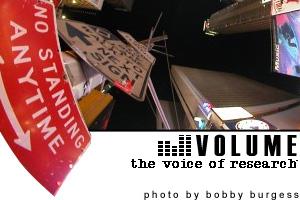- Empirical Research
- Survey Research
- Questionnaire Survey
- Interview Survey
- Telephone Survey
- Strengths and Weaknesses
-
Navigate
- Website for Communication Research
- Human Communication Research
- Nonverbal Communication Research Page
- Web Journal of Mass Communication Research (WJMCR)
Related Links
- Bobby Burgess
- Pixel Scripts
- Blogring.Net
- Soup-Faerie
- Sage Publications
Credits















THE QUESTIONNAIRE
Definition
-
a list of planned, written questions related to a particular topic, with space provided for indicating the response to each question, intended for submission to a number of persons for reply
-
commonly used in behavioral research or social research
Advantages of the Questionnaire
- The questionnaire is easy to construct.
- Distribution is easy and inexpensive.
- Responses are easy to tabulate.
- The respondent’s replies are free.
- Confidential information may be given freely.
- The respondent can fill out the questionnaire at will.
- The respondents can give more accurate replies.
Disadvantages of a Questionnaire
- The questionnaire cannot be used with those who cannot read nor write well, especially those who are totally illiterate.
- If many respondents may not return the filled up copies of the questionnaire purposely or forgetfully, considerable follow-ups are necessary.
- If a respondent gives a wrong information, it cannot be corrected at once.
- A respondent may leave some or many questions unanswered because nobody urges him to do so or he may not understand the significance of the information he gives.
- Some questions may be vague and so the respondent may not answer them or if he does, he may give wrong replies.
- The number of choices may be so limited that the respondent may be forced to select responses that are not his actual choices.
Construction of a Questionnaire
There are some steps in the preparation of a questionnaire, some of which are the following:
- Doing library research.
- Talking to knowledgeable people.
- Mastering the guidelines.
- Writing the questionnaire.
- Editing the questionnaire.
- Rewriting the questionnaire.
- Pretesting the questionnaire.
- Writing the questionnaire I its final form.
Types of questions asked in survey questionnaires
- According to form:
- The free-answer type.
§ Also called the open form, open-ended, subjective, unrestricted, essay, and unguided response type.
§ The respondent answers the question in his own world and in his own way.
- The guided response type
§ Also called the closed form or restricted type
§ The respondent is guided in making his reply.
§ There are two kinds of this type:
a. Recall type
Example: Please supply the information asked for: Age ___ Sex ____ Date of birth (exact) ____ Place of birth
b. Recognition types. The possible responses are given and respondent selects his answer.
i. Dichotomous. There are only two options and one is selected.
Example: Are you married? Yes ____ No ____
ii. Multiple choice. Only one answer is chosen from those given as options.
Example: What is your highest educational attainment.
Please put a check mark before your reply.
_____ Elementary graduate
_____ High school graduate
_____ College graduate
iii. Multiple response. Two or more options may be chosen.
Example: Why do you use toothpaste in brushing your teeth? Place check marks before your choices.
_____ It prevents tooth decay
_____ It freshens the breath
_____ It is soothing to the mouth
_____ It is cheap
_____ It is imported
- According to the kind of data asked for
a) Descriptive (verbal) data
What kind of house do you live in? Please check
_____ Concrete _____ Semi-Concrete Wooden
_____ Bamboo _____ Others
b) Quantified (numerical) data
1) How old are you? _____
2) What is your average monthly income? P _____
c) Intensity of feeling, emotion, or attitude
Do you agree to have only one day election, set for local and national elective officials?
_____ Strongly agree
_____ Agree
_____ Fairly agree
_____ Disagree
_____ Strongly disagree
d) Degree of judgment
How serious is the problem (drug addiction, drinking, stealing, etc.)?
_____ Very serious
_____ Serious
_____ Fairly serious
_____ Not serious
_____ Not a problem
How adequate are the facilities
_____ Very adequate
_____ Adequate
_____ Fairly adequate
_____ Inadequate
_____ Very inadequate
e) Understanding
Explain what democracy is.
f) Reasoning
Why do you prefer democracy over dictatorship?
^top^
Previous - Next